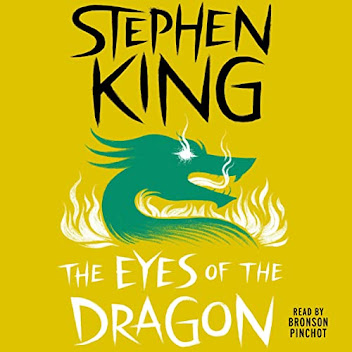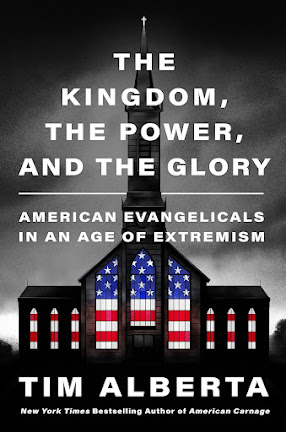LITTLE BROTHER (audiobook) by Cory Doctorow
A Must Read for Early 21st Century America?
Published by Listening Library in 2010
Performed by Kirby Heyborne
Duration: Approximately 12 hours
Published by Listening Library in 2010
Performed by Kirby Heyborne
Duration: Approximately 12 hours
Unabridged.
I've had Little Brother on my to-be-read list for while. But, it shot to the top of my list when it was pulled as the book in a "one book/one school" project at a Florida high school. I picked up the audiobook and my daughter and I listened as we commuted to school every day (she is a freshman at the school where I teach.
The story is about Marcus, a teenager in San Francisco who is a hacker, skips school and is, generally speaking, a pretty with-it kid. I imagined him as a Ferris Bueller-type kid with a lot more tech at his disposal and in a much more serious situation. Marcus and three of his friends are skipping the end of school when the Bay Bridge and the tunnel underneath it are blown up by terrorists in an event that is even larger than 9/11.
Marcus and his three friends try to hide in the BART (subway) tunnels but they are in danger of being crushed by the panicking people so they head back up to the surface after one of their group is injured. A passing police van picks them up and they are turned over to the Department of Homeland Security. It is never clear what they did wrong except being out of school on a day when thousands died due to a terrorist attack. The mere fact makes them suspect and they are interrogated thoroughly, including being denied the right to contact a lawyer, sleep deprivation and solitary confinement.
Marcus knows his rights and insists on a phone call, an attorney, knowing what he is being charged with and more. The DHS insists that it just wants his phone passwords, his passwords to his computer and his online accounts. They inform him that his friends are being similarly punished because he will not cooperate.
After a few days, he breaks and gives DHS his passwords to his computer and his phone.
He is crushed.
But, when he is released (with just two of his friends - the injured one is not released and is presumed dead) he cannot believe how quickly DHS has swarmed throughout San Francisco, setting up security checkpoints, monitoring the traffic patterns of cars using toll roads and the traffic patterns of BART riders. His own hand-built laptop has even been physically hacked and tracking machinery has been installed without his parents' knowledge while he was locked up.
At this point, Marcus regains some of his former swagger and decides to act, even if it is in a small way. As he puts it, “Never underestimate the determination of a kid who is time-rich and cash-poor.” Marcus puts his hacker skills to use and decides to fight his own little guerrilla war against the heavy-handed and illegal techniques that DHS is employing. The title Little Brother comes from this - he is not "Big Brother" like the government in the novel 1984. Instead, he is one little person watching the government and documenting what he sees and letting other know what's going on. And, in the process, he becomes one of many people who decide that rights are more important than the illusion of safety and start to take back San Francisco...
One of the beautiful thing about fiction books is that you can discuss important topics in a non-threatening way. In this case, the events in this book are clearly a stand-in for 9/11 and the DHS's reaction is a stand-in for the Patriot Act and some of the heavy-handed tactics used against Muslim communities immediately after 9/11.
I listened to the book with my daughter and we often stopped the audio playback to talk about what was going on in the book (although the 4 or 5 scenes involving sexual activity, even if it wasn't graphicly described, made for uncomfortable father-daughter listening so we usually skipped ahead until it was over). We talked about what your rights were if you were arrested, why your rights are so important and have to be defended in an absolutist manner, why "I don't have anything to hide so I don't care if my rights are violated" is just a cop out and more. We drug this audiobook out so long that took about a month to listen to it.
I rate this book 5 stars out of 5 despite the fact that at some points the techno-speak overwhelms the book and it becomes about as interesting as reading a router installation manual. But, the positives of the the book overcome these dry areas and make this book just about must-read material for early 21st century America.
Here's a quote I really liked from the book: “I can't go underground for a year, ten years, my whole life, waiting for freedom to be handed to me. Freedom is something you have to take for yourself.”
This book can be found on Amazon.com here: Little Brother by Cory Doctorow.
Reviewed on November 25, 2014.
I've had Little Brother on my to-be-read list for while. But, it shot to the top of my list when it was pulled as the book in a "one book/one school" project at a Florida high school. I picked up the audiobook and my daughter and I listened as we commuted to school every day (she is a freshman at the school where I teach.
The story is about Marcus, a teenager in San Francisco who is a hacker, skips school and is, generally speaking, a pretty with-it kid. I imagined him as a Ferris Bueller-type kid with a lot more tech at his disposal and in a much more serious situation. Marcus and three of his friends are skipping the end of school when the Bay Bridge and the tunnel underneath it are blown up by terrorists in an event that is even larger than 9/11.
 |
| The Bay Bridge. Photo by Centpacrr. |
Marcus and his three friends try to hide in the BART (subway) tunnels but they are in danger of being crushed by the panicking people so they head back up to the surface after one of their group is injured. A passing police van picks them up and they are turned over to the Department of Homeland Security. It is never clear what they did wrong except being out of school on a day when thousands died due to a terrorist attack. The mere fact makes them suspect and they are interrogated thoroughly, including being denied the right to contact a lawyer, sleep deprivation and solitary confinement.
Marcus knows his rights and insists on a phone call, an attorney, knowing what he is being charged with and more. The DHS insists that it just wants his phone passwords, his passwords to his computer and his online accounts. They inform him that his friends are being similarly punished because he will not cooperate.
After a few days, he breaks and gives DHS his passwords to his computer and his phone.
He is crushed.
But, when he is released (with just two of his friends - the injured one is not released and is presumed dead) he cannot believe how quickly DHS has swarmed throughout San Francisco, setting up security checkpoints, monitoring the traffic patterns of cars using toll roads and the traffic patterns of BART riders. His own hand-built laptop has even been physically hacked and tracking machinery has been installed without his parents' knowledge while he was locked up.
 |
| Cory Doctorow. Photo by Jonathan Worth. http://JonathanWorth.com |
At this point, Marcus regains some of his former swagger and decides to act, even if it is in a small way. As he puts it, “Never underestimate the determination of a kid who is time-rich and cash-poor.” Marcus puts his hacker skills to use and decides to fight his own little guerrilla war against the heavy-handed and illegal techniques that DHS is employing. The title Little Brother comes from this - he is not "Big Brother" like the government in the novel 1984. Instead, he is one little person watching the government and documenting what he sees and letting other know what's going on. And, in the process, he becomes one of many people who decide that rights are more important than the illusion of safety and start to take back San Francisco...
One of the beautiful thing about fiction books is that you can discuss important topics in a non-threatening way. In this case, the events in this book are clearly a stand-in for 9/11 and the DHS's reaction is a stand-in for the Patriot Act and some of the heavy-handed tactics used against Muslim communities immediately after 9/11.
I listened to the book with my daughter and we often stopped the audio playback to talk about what was going on in the book (although the 4 or 5 scenes involving sexual activity, even if it wasn't graphicly described, made for uncomfortable father-daughter listening so we usually skipped ahead until it was over). We talked about what your rights were if you were arrested, why your rights are so important and have to be defended in an absolutist manner, why "I don't have anything to hide so I don't care if my rights are violated" is just a cop out and more. We drug this audiobook out so long that took about a month to listen to it.
I rate this book 5 stars out of 5 despite the fact that at some points the techno-speak overwhelms the book and it becomes about as interesting as reading a router installation manual. But, the positives of the the book overcome these dry areas and make this book just about must-read material for early 21st century America.
Here's a quote I really liked from the book: “I can't go underground for a year, ten years, my whole life, waiting for freedom to be handed to me. Freedom is something you have to take for yourself.”
This book can be found on Amazon.com here: Little Brother by Cory Doctorow.
Reviewed on November 25, 2014.











Comments
Post a Comment